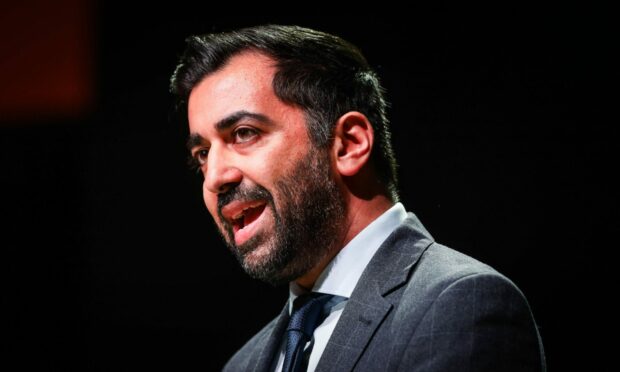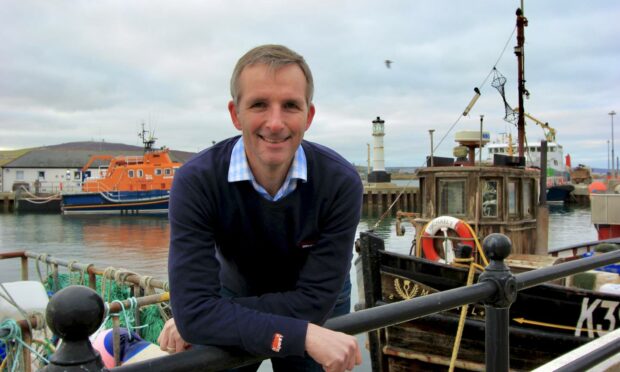As they meet the man behind the proposals for assisted dying, Dundee campaigners consider how they might finally be able to get the stalled policy over the line.
“I would like to think I maybe have the choice to make myself, rather than spending the last six months of my life in agony,” says Robbie Sharpe, humanist chaplain at Dundee University.
“I’d like to think people in Dundee could have that choice if they wanted,” he adds.
It’s now more than a decade since veteran independent MSP Margo MacDonald’s first effort to push through the divisive policy in Holyrood was defeated.
Following her death, another attempt to legalise assisted dying spearheaded by Scottish Green co-leader Patrick Harvie was also voted down.
What would the new law entail?
Lib Dem Liam McArthur is now the latest MSP making a bid to get the law approved in the face of strong opposition.
The aim, he says, is to ensure terminally ill people can choose when they end their own lives with dignity instead of enduring constant pain.
Crucially, the new law would only apply for people who face certain death, and would only be eligible for adults who can give their own consent.
“As long as you’re of sound mind, I think you should be allowed to do it,” Mr Sharpe says.
“It has to be very carefully managed. But this is a good bill. It takes into consideration any concerns,” he adds.
Fraser Sutherland, CEO of Scotland’s humanist society, says: “A lot of people are very sadly dying bad deaths in painful situations, and they don’t have control.
“As a humanist organisation, we believe people should have control over the end of their lives.”
But if the law will help ease suffering, why has it stalled on previous occasions?
Why are groups opposed?
Religious groups and disability charities have been constant critics of efforts to legalise assisted dying in Scotland.
They fear vulnerable patients may opt to end their lives prematurely due to pressure or feeling like they are a burden on others.
Instead, they reckon more money should be invested into end-of-life care to ensure terminally ill people are as comfortable as possible.
First Minister Humza Yousaf confirmed last year he remains opposed to assisted dying due to concerns flagged by disability groups.
SNP health chief Michael Matheson is also opposed, as is the party’s equalities minister Emma Roddick.
Dr Gillian Wright, director of Our Duty of Care, a campaign of health group professionals opposed to assisted dying, says: “Palliative care doctors across Scotland look after terminally ill patients with great compassion and hugely oppose assisted suicide.
“They are concerned for vulnerable patients who may change their mind, may be under pressure from others or may feel a burden due to lack of care.”
Professor Kevin Yuill, CEO of Humanists Against Assisted Suicide and Euthanasia, says: “Many humanists oppose legalised assisted suicide and euthanasia.
“If we take the original meaning of humanist – to be human-centred – legalised assisted suicide like that proposed by Liam McArthur is an anathema to humanism.”
So are Mr McArthur’s proposals doomed, or is there a route that could see them passed?
Is there still hope for the law?
Despite Mr Yousaf opposing the policy, many of his SNP backbenchers are in favour and would potentially back it in a free vote.
A total of 36 MSPs backed Mr McArthur’s proposals at the very first stage, including 19 nationalists.
Mr Sutherland reckons the tide is changing – but admits previous opposition to the law has been “frustrating”.
He says: “A lot of people who’ve been campaigning on this are quite frustrated. The public are overwhelmingly in support of this.”
Montrose woman calls for assisted dying law after trauma of three family deaths
Daughter says both parents should have had assisted dying choice
Assisted dying plea: ‘I don’t want my daughter to witness what I had to’
A YouGov poll in September found 77% of respondents were in favour of terminally ill people being able to take their own lives, compared to 12% against.
Mr Sutherland adds: “It is slightly disappointing to see some MSPs have said they’re not going to vote for it before they’ve even seen the bill.
“Religious groups are of the opinion that there’s a sanctity of life that’s god given, and only God can decide where that ends.
“For someone like myself who’s not religious, and for hundreds of thousands of people across Scotland who don’t share those beliefs, we should be able to exercise our views and beliefs.”
Mr Sharpe says: “In the last few years, there seems to be more understanding that this is what people want, and we’re grown up adults so we can make our own choices.”
Mr McArthur says: “The bill that I have proposed would be open only to terminally ill, mentally competent adults, subject to strict safeguards and sitting alongside high-quality end-of-life care.
“Despite the best efforts of palliative care, it is clear that the current law in Scotland is not working and far too many terminally ill Scots face a bad death.”
A government spokesperson says: “The Scottish Government is committed to ensuring that everyone has dignity and respect at the end of their life, and will carefully consider the substance of any bill.”





Conversation